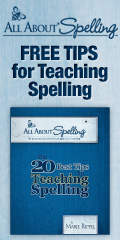
The Grammar Stage:
The Logic Stage
You can tell when your young learner has arrived at this stage because they will begin to ask “why?” whereas before, they would just accept what is given to them. You can be frustrated by this OR you can use it to build and develop your child’s knowledge in amazing ways.
In this stage of learning, you want to develop your child’s ability to separate between the subjects and analyze and assess them. Think of this as your investigation stage.
During this second three-year period, begin to develop activities that allow your child to ask why and then help them to make their own conclusions about certain things. These can include research projects, outdoor skills, and more!
The Rhetoric Stage
Pros
Every method has both positives and negatives. But considering this to be one of the most popular choices of methods, the pros are definitely are larger draw.
People love it! It’s been used for so long that it has been well tested and proven to be successful.
You can find so many resources out there to help you as you begin to implement. You won’t be left floundering.
Not only can you find a wealth of resources, you can also find a wealth of connections to help you and your child. There are so many other families that are using this method, so you can get into communication with other parents, groups, or co-ops for support.
Reading is a huge focus, and your child will be required to read classics that will have been used for years to stimulate and inspire. Your child will emerge as extremely well-read, a rare achievement in today’s world.
There is also a great focus on language learning, so your child will get the chance to explore both ancient and modern languages.
Critical thinking is an essential skill to be able to function as an independent thinker. Critical thinking, analysis, and logic will be highly developed in your child if you employ this method.
Cons
Because reading is such a focus, there will be a lot of reading to do! That can be a drawback for some students or parents and can be a time constraint. And if your child has reading issues, then that could also cause problems and stunt the progress of the method.
There is the argument that some of the resources or styles are too old and not as applicable today, hence the use of the word classical. For example, learning Latin may be prestigious and add to your child’s understanding of language, but they may not be able to use that often in the real world.
There is less time spent on other subjects as well as interactive learning due to the heavy focus on academic study. So, if you like this method, but still wish to add in other parts from different methods, you could use a mixed approach.
Conclusion
Overall, the classical homeschooling method is a tried and true teaching style that is employed by many homeschooling parents with great success. It’s popular, it’s effective, and your child will leave your homeschool armed with the knowledge, understanding, and wisdom they will need to take on the world.
Great resources for the classical learning method:
Time 4 Learning – Classical Learning: Get the information you’re looking for about this method as well as links to Time 4 Learning’s related resources that can help you put this method into action at your homeschool.
They Call Me Blessed – Our Relaxed Classical Homeschool: Get some ideas on how to implement this method into your homeschool from Ana!
Great Homeschool Conventions – The Classical Homeschooling Style: Find background information on the style as well as read a guide on how to decide whether or not its right for your family.
The Best Schools – Homeschooling: Which Model is Right for You?: Take a look at all the different methods and their pros and cons to help you decide if the classical style is your style for your homeschool.
Homegrown Learners – 100 Resources for the Classical Homeschool: This site is an absolute gem for those who are interested in a classical method. Find information, links, ideas, and so much more!
Classical Conversations – What is Classical Conversations?: Many homeschooling families are enrolling in this program to supplement their classical education.
Life Abundantly Blog – A Day in Our Gentle, Classical Homeschool: See the method being put into action in this homeschool family!
Suggested Books:
Supplement your knowledge in this homeschooling style with these popular and well-reviewed books you can find on Amazon!
- The Well-Trained Mind: A Guide to Classical Education At Home
- Teaching the Trivium: Christian Homeschooling in a Classical Style
- Classical Education and the Homeschool
- The Gentle + Classical Preschool: Level 1
Check out our Homeschool Methods Explained Series
- Homeschool Methods Explained: Classical
- Homeschool Methods Explained: Charlotte Mason
- Homeschool Methods Explained: Unschooling
- Homeschool Methods Explained: Unit Studies
- Homeschool Methods Explained: Montessori
- Homeschool Methods Explained: Eclectic or Relaxed
- Homeschool Methods Explained: Roadschooling
- Homeschool Methods Explained: Worldschooling
- Homeschool Methods Explained: Waldorf
- Homeschool Methods Explained: School at Home
- Homeschool Methods Explained: Online Homeschooling
- Homeschool Methods Explained: Moore Formula
Keri
Latest posts by Keri (see all)
- FREE Easter and Resurrection Day Resources! - March 31, 2025
- FREE Butterfly Unit: Printables, Activities & More! - March 18, 2025
- FREE St. Patrick’s Day Resources & Printables! - March 4, 2025
- FREE Dr. Seuss-Inspired Printables & Resources! - February 14, 2025
- Super Bowl Printables, Resources, & Ideas! - January 27, 2025





